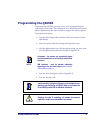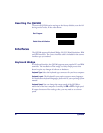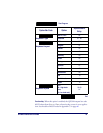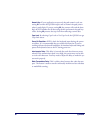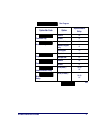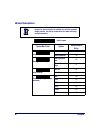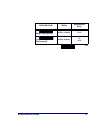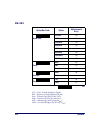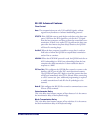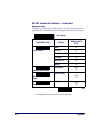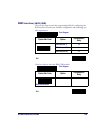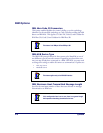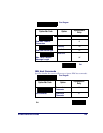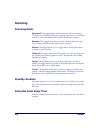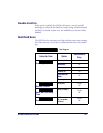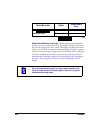
Product Reference Guide 11
RS-232 Advanced Features
Flow Control
None: The communication uses only TxD and RxD signals, without
regard for any hardware or software handshaking protocol.
RTS/CTS: If the QS2500 wants to send the bar code data to the host com-
puter, it will issue the RTS signal first, wait for the CTS signal
from the host computer, and then perform the normal data com-
munication. If there is no replied CTS signal from the host com-
puter after the timeout (response delay) duration, the QS2500
will issue five warning beeps.
Xon/Xoff: When the host computer is unable to accept data, it sends an
Xoff code to inform the QS2500 to suspend data transmission
and an Xon to continue.
ACK/NAK: When the ACK/NAK protocol is used, the QS2500 waits for an
ACK (acknowledge) or NAK (not acknowledge) from the host
computer after data transmission. It then resends the data in
response to a NAK.
PSC Aux. Port: This configures the QS2500 flow control to connect to the
Auxiliary (AUX) port of some PSC omni-directional scanners.
The QS2500 will assert RTS high to signal the scanner that data
will be sent immediately after RTS is asserted. When connecting
to a PSC scanner aux. port, additional programming is required
to enable transmission of code IDs for all symbologies to be
scanned.
Mode B: This configures the RS-233 flow control to communicate to some
Wincor (SNI) terminals.
Intercharacter Delay
This is the delay time between outputs of data character. It is the same as
the intercharacter delay of the keyboard wedge.
Block Transmission Delay
This is the delay time between outputs of bar code data. It is the same as
the block transmission delay of the keyboard wedge.



